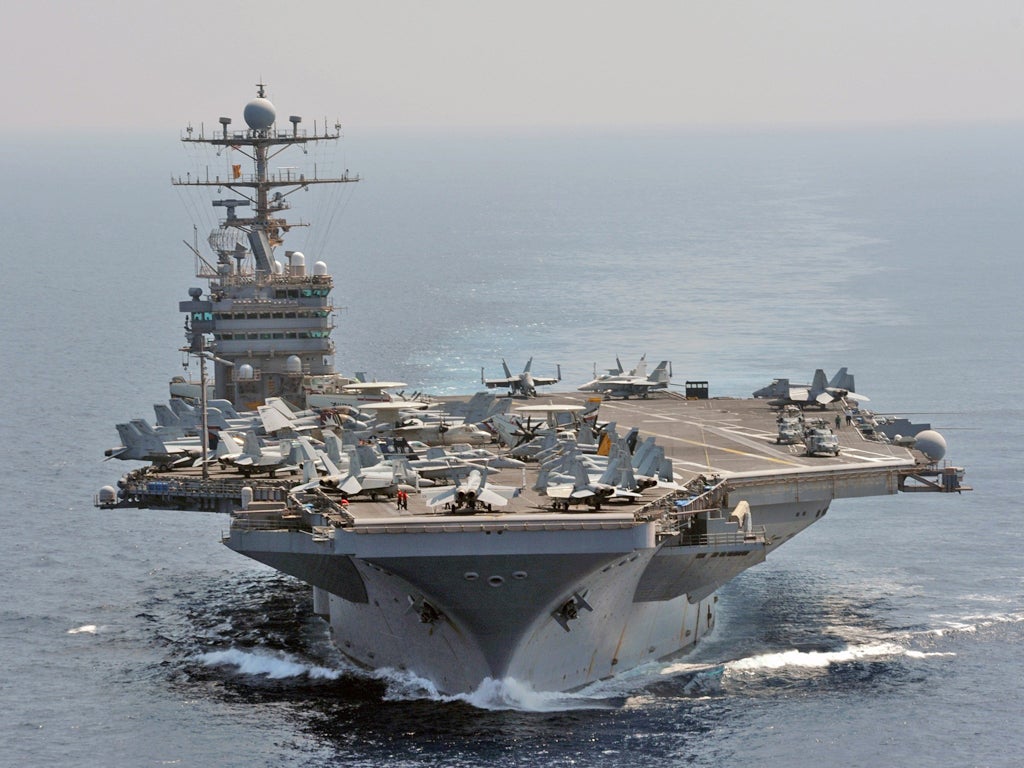Sanctions will 'push Iran towards talks'

Ministers hope the embargo on Iranian oil exports to the European Union and fresh sanctions against the regime in Tehran will reduce the risk of a conflict in the region, William Hague told MPs.
The Foreign Secretary said the "unprecedented" measures would put pressure on Iran to return to the negotiating table over the state's nuclear ambitions.
Defence Secretary Philip Hammond has warned that further military reinforcements could be deployed to the region following Iran's threat to close the strategically important Strait of Hormuz in retaliation for sanctions.
He said the decision to send HMS Argyll as part of an international flotilla of warships through the sensitive waterway on Sunday sent a "clear signal" to Tehran.
Mr Hague confirmed the possibility of sending further Royal Navy vessels to the area, but insisted the sanctions were designed to prevent war.
"This is not a set of actions designed to lead to any conflict but to lead us away from any conflict by increasing the pressure for a peaceful settlement of these disputes."
But he added: "We have many contingency plans for many contingencies, including as the Defence Secretary said at our press conference this morning, for sending any further naval forces to that area.
"But we are not planning to take military action in the Gulf. We call on Iran to return to the negotiations which are at all times available to it."
Mr Hague was updating MPs in response to an urgent question from Tory Robert Halfon (Harlow) who asked: "Are we facing the prospect of a nuclear dictatorship in the Middle East?"
Mr Hague told the Commons the EU had agreed "a phased oil embargo, a partial asset freeze of the central bank of Iran, measures against Iran's petrochemical sector and a ban on Iranian transactions involving gold".
He added: "This is a major increase in the peaceful legitimate pressure on Iran to return to negotiations over its nuclear programme."
Iran was in defiance of six United Nations Security Council resolutions calling for a suspension of its uranium enrichment programme and to enter talks.
The regime's decision to enrich uranium to 20% at an underground facility at Qom "demonstrates the urgent need to intensify diplomatic pressure on Iran to return to negotiations.
"This is a programme that has no plausible civilian use and which Iran tried to keep secret."
The International Atomic Energy Agency had "serious concerns" about "possible military dimensions" to Iran's programme.
Mr Hague warned any attempt to close the Strait of Hormuz would be "illegal and unsuccessful".
He said: "It is very much against Iran's interests to seek to close the Strait to oil exports.
"Britain maintains a constant presence in the region as part of our enduring contribution to Gulf security. The Royal Navy has been conducting such patrols since 1980.
"At the weekend HMS Argyll and a French vessel joined the US carrier group transiting through the Strait of Hormuz.
"This was a routine movement but it underlined the unwavering international commitment to maintaining rights of passage under international law.
"Any attempt by Iran to block the Strait would be both illegal and unsuccessful."
Mr Halfon said Iran was the "new Soviet Union of the Middle East" because of its influence in countries throughout the region.
"It supports terrorism, undermines democracy and is trying to stop the Arab Spring in Syria," he said.
"Now we are threatened by an Iranian nuclear bomb which risks the security of the Gulf states, Israel and the whole region."
He continued: "The question must now be asked: are we facing the prospect of a nuclear dictatorship in the Middle East?
"In the past, nuclear deterrence worked because of mutually assured destruction (Mad). But for Mad to work you have to be sane and the Iranians have said they would be happy to use nuclear weapons."
Mr Halfon asked what military action Britain and the allies were planning in the Strait of Hormuz and what the next step would be if sanctions failed.
He added: "Most will accept that Britain has shouldered its fair burden in tackling dictators.
"But it seems clear that the free world must send a message to Iran that if they continue with their nuclear plans it will lead to military action.
"No one wants war but tragically it is looking increasingly possible."
The Foreign Secretary told him: "It is because there is a very serious danger of wider proliferation across the Middle East if Iran were to develop nuclear weapons capability that this issue must be confronted, that we and our European partners and so many other allies take the strong stance that we do.
"We do so very much in the interest of avoiding conflict, I must stress."
PA
Join our commenting forum
Join thought-provoking conversations, follow other Independent readers and see their replies
Comments
Bookmark popover
Removed from bookmarks